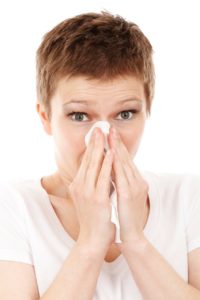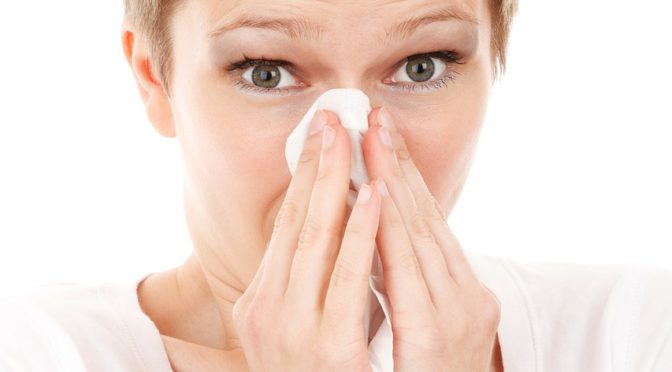 In North America, millions of people are sickened, hundreds of thousands are hospitalized, and more than 100 million workdays are lost, due to the flu each year. It’s important to take every precaution to not have to cancel gigs. Don’t risk sidelining your career due to illness. Do your best to avoid the flu this season.
In North America, millions of people are sickened, hundreds of thousands are hospitalized, and more than 100 million workdays are lost, due to the flu each year. It’s important to take every precaution to not have to cancel gigs. Don’t risk sidelining your career due to illness. Do your best to avoid the flu this season.
Your best defense may be to get vaccinated. Flu vaccine effectiveness depends on how well the vaccine matches the dominant strain of influenza circulating in a particular year. This year’s shot will offer protection against the H1N1 flu virus and two other flu viruses expected this season. A vaccine that protects against four strains of the virus will be available, as will a high-dose flu vaccine for adults age 65 years and older. According to the Centers for Disease Control and Prevention (CDC), when the vaccine is well-matched, it can reduce the risk of flu by about 50%.
It takes up to two weeks to build immunity after receiving a flu shot, but you can benefit from the vaccine even after flu season is underway. Typically, the flu hits in October, peaks in January or February, and can run well into spring. Experts say that for some populations, like the elderly, the vaccine may wear off faster. But because it’s unknown when the flu will strike, it’s best for people to get their flu shots sooner rather than later.
Who should not get a flu shot?
Check with your doctor if you have had a serious reaction to a previous flu vaccine. Generally, it’s inadvisable for these individuals.
Most types of flu vaccines contain a small amount of egg protein. A mild egg allergy is not cause for alarm, but if you have a severe egg allergy, you should be vaccinated in a setting with medical personnel who can respond to a severe allergic reaction. There are flu vaccines approved for use in people age 18 years and older that do not contain egg proteins. Consult your doctor about your options.
What are the flu vaccine delivery options?
This year the vaccine is recommended as an injection only. The CDC no longer recommends nasal spray flu vaccinations because in the last three flu seasons, the spray has been ineffective.
The injection is usually given in a muscle in the arm. The FDA has also approved an alternative for adults aged 18-64. The intradermal flu vaccine is injected into the skin, instead of the muscle, and requires 40% less antigen than the regular flu shot.
Can the vaccine give me the flu?
The vaccine’s killed (inactivated) viruses enable the body to develop the antibodies necessary to ward off influenza viruses, but cannot give you the flu. However, you may develop flu-like symptoms—muscle aches and a fever—for a day or two after receiving a flu shot. This may be a side effect of your body’s production of protective antibodies.
It takes about two weeks for the flu shot to take full effect. If you are exposed to the influenza virus shortly before or during that time period, you may catch the flu.
What other illnesses mimic the flu?
Flu symptoms include fever, chills, malaise, dry cough, loss of appetite, and body aches. Because this is the body’s natural response to fighting infection, other illnesses mimic flu symptoms. Some of the more well-known conditions include meningitis, tuberculosis, food poisoning, hepatitis, Hodgkin’s disease, and Lyme disease.
What kind of protection does the flu vaccine offer?
The flu vaccine is generally more effective among healthy children two years old and older and adults age 64 and younger. The elderly and people with particular medical conditions may develop less immunity after receiving a flu shot.
According to the CDC, when the match between the flu vaccine and circulating strains is more precise, a flu shot is 71% effective in reducing flu-related hospitalizations among adults. The flu shot may reduce a child’s risk by 74%.
What are other ways I can avoid the flu?
Most flu viruses are not spread directly by airborne particles, like coughs and sneezes, but by direct contact. Hand washing is the first line of defense. Wash your hands often and avoid touching your face, especially your nose and eyes. Carry hand sanitizer and use it throughout the day.
Bar soap can be a breeding ground for many viruses and bacteria. When possible, use liquid soap. Hand towels should be changed frequently for the same reason. Wipe down surfaces such as stair rails, telephones, countertops, desks, music stands, doorknobs, and grocery carts. Clean your mouthpiece each time you handle it and avoid touching any part that will make contact with your lips.
Germs survive in stagnant air so open the windows and air out your home or practice room. Avoid breathing in smoke. Smoke can increase your susceptibility to viruses. If you have no choice but to play in a smoke-filled room, step outdoors for fresh air during breaks.
Rest, exercise regularly, stay hydrated, eat a nutritious diet, and try to manage your stress.
How do I determine if I have a cold or the flu?
Cold symptoms include runny nose, sneezing, and coughing. Influenza symptoms are more acute, accompanied by fever, extreme fatigue, sore throat, headache, and muscle aches.
Prescription medications, such as Tamiflu, may reduce the length of the illness, but must be taken within the first 48 hours of showing symptoms. You can sometimes get a prescription before showing symptoms, if a family member has been diagnosed with the flu.
Although there is no cure for the flu (or the common cold), you will recover more quickly by following some simple advice. First, stay at home and rest. Try to avoid spreading the illness to colleagues and other musicians with whom you are in close contact. Physicians recommend drinking plenty of fluids and avoid alcoholic beverages, which are dehydrating.
On average, the duration of the flu is about a week. Seek medical advice immediately if you experience high or prolonged fever; difficulty breathing or shortness of breath; pain or pressure in the chest; dizziness or fainting; confusion; or vomiting.
Where can I get vaccinated?
Flu vaccines are offered at doctor’s offices. If you do not have a regular doctor or health care practitioner, you may be able to get a flu vaccine at a pharmacy, urgent care clinic, or a university or public health center. To find a flu vaccine location near you, go to the flu shot map (http://flushot.healthmap.org/).


